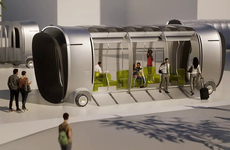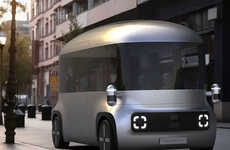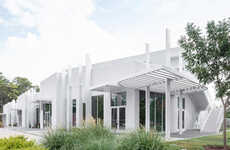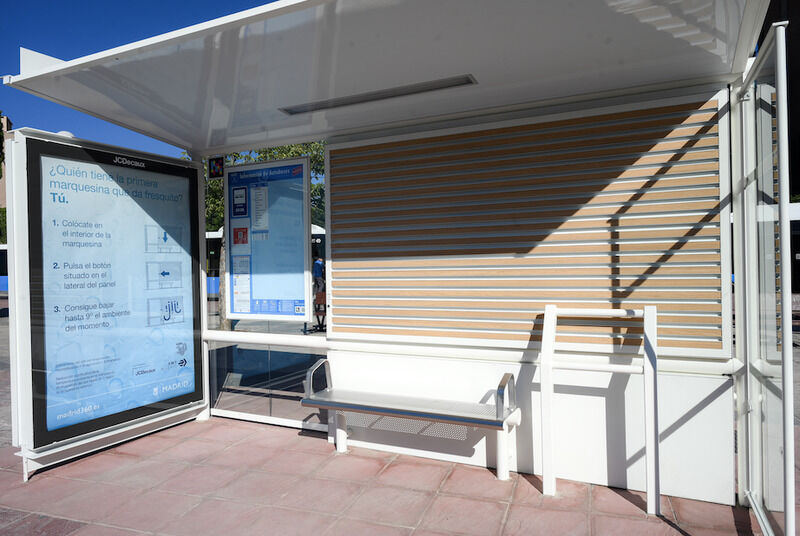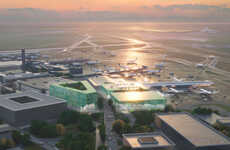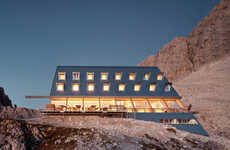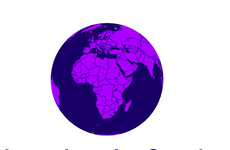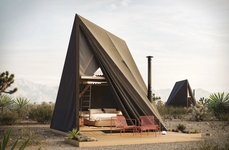
EMT Madrid Spearheads the Quest for Comfortable Public Transportation
EMT Madrid has recently introduced two innovative cooling bus shelters in the Pavones and Villaverde Cruce areas. This new infrastructure was developed by JCDecaux.
The cooling bus shelters incorporate an advanced evaporative cooling and ventilation system activated by a button when temperatures exceed 25ºC. The system is designed to lower the ambient temperature inside the shelter by up to 9ºC, depending on external conditions. The cooling mechanism utilizes a water tank and an evaporative cooling module, with energy provided by an integrated photovoltaic panel. This prototype will undergo a six-month evaluation period on public roads to assess its effectiveness and impact on passenger comfort during hot weather. The integration of sustainable technology, such as solar energy, also adds an environmentally friendly aspect to the project.
Image Credit: EMT Madrid
The cooling bus shelters incorporate an advanced evaporative cooling and ventilation system activated by a button when temperatures exceed 25ºC. The system is designed to lower the ambient temperature inside the shelter by up to 9ºC, depending on external conditions. The cooling mechanism utilizes a water tank and an evaporative cooling module, with energy provided by an integrated photovoltaic panel. This prototype will undergo a six-month evaluation period on public roads to assess its effectiveness and impact on passenger comfort during hot weather. The integration of sustainable technology, such as solar energy, also adds an environmentally friendly aspect to the project.
Image Credit: EMT Madrid
Trend Themes
1. Evaporative Cooling Systems - Advanced evaporative cooling mechanisms in public infrastructure provide substantial temperature regulation without excessive energy consumption.
2. Solar-powered Technology - Integrated photovoltaic panels in urban designs enhance sustainability by harnessing renewable energy sources.
3. Weather-responsive Infrastructure - Innovative systems activated by specific weather conditions offer tailored environmental comfort solutions for public spaces.
Industry Implications
1. Public Transportation - Implementing cutting-edge cooling shelters enhances passenger comfort, potentially increasing public transit use.
2. Renewable Energy - Solar-powered applications in urban infrastructure demonstrate the viability of integrating clean energy solutions.
3. Urban Development - Weather-responsive designs in city planning offer new directions for enhancing urban livability and resilience.
7.3
Score
Popularity
Activity
Freshness

